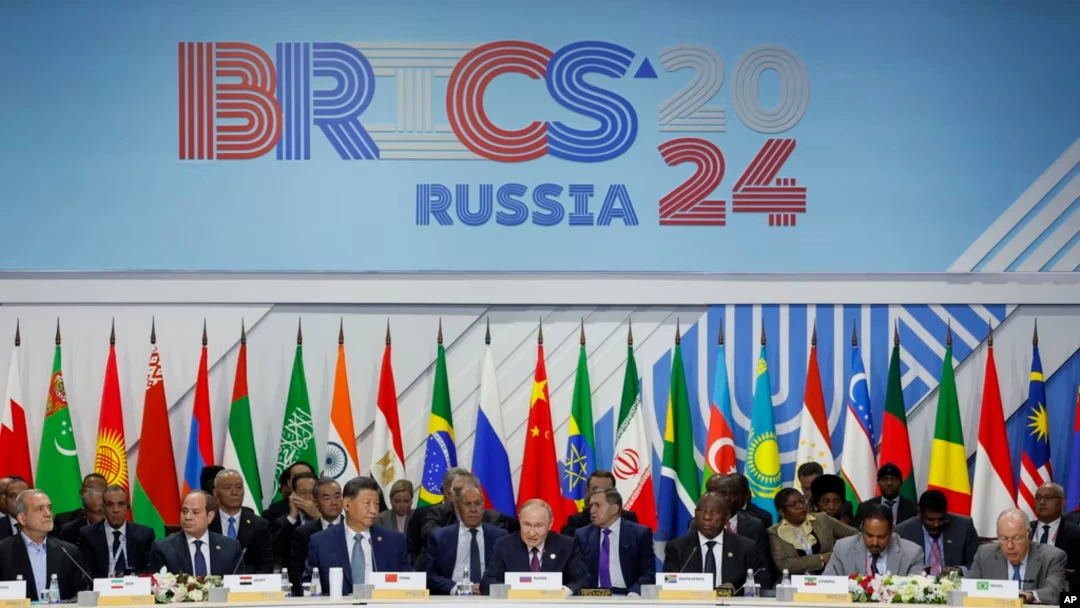100% Tariffs on BRICS Nations: Stormy Weather Coming for U.S. Supply Chains and Consumers

The new administration that took over plans to impose 100% tariffs on goods from BRICS nations, comprising Brazil, Russia, India, China, and South Africa, but including recent additions such as the UAE and Iran-a completely new swing of the pendulum on U.S. trade policy. The goal, of course, is to force these countries to stop trying to develop an alternative world currency system that would weaken the dollar as the world's reserve currency. But such tariffs have enormous repercussions that go far beyond geopolitics and hit the everyday consumer, businesses, shippers, carriers, and the overall economy hard.
Tariffs and Inflation: A Price Hike Waiting to Happen
Tariffs work like a tax on imported goods. For every product imported from a BRICS country, an importer would have to pay 100% of its value as a tax to the government. Here's how this would play out:
1.Cost Passed to Consumers
Importers usually pass on additional costs to buyers, which means higher prices for consumer goods. Electronics, textiles, machinery, agricultural products, and other such goods-essentially part of daily life-would face steep price increases. For example:
Electronics and Gadgets: With China as a leading supplier of semiconductors and consumer electronics, products like smartphones, laptops, and household appliances could become unaffordable for many.
Food Staples: Agricultural imports like coffee, fruit, and sugar from Brazil would see price surges, squeezing household budgets.
Clothing: With textiles and apparel heavily reliant on BRICS nations, wardrobe upgrades may come with sticker shock.
2.Worsening Inflation
Inflation, already a concern for many households, may spiral further. With increased costs at every step-from sourcing materials to transportation-everyday goods will become costlier, hitting low- and middle-income households the hardest. This causes a ripple effect:
1. Decreased purchasing power among consumers.
2. Slower economic growth as spending shifts from discretionary items to essentials.
Supply Chain Disruptions: Concerns for Shippers and Carriers
Imposing 100% tariffs would present freight shippers and carriers with some significant hurdles and would increase pressure throughout the supply chain.
1.Shippers See Skyrocketing Costs
For manufacturers and exporters, it will mean that tariffs will double the cost of importing materials or finished goods from BRICS countries. This will increase their operational expenses, reducing their competitiveness and squeezing their profit margins. Shippers will have to either absorb the extra costs, denting their bottom line, or pass them on to consumers, further feeding inflation.
2.Carriers May See Reduced Freight Volume
With higher costs, many businesses will reduce their reliance on imports, impacting freight carriers directly. Shipping lanes associated with BRICS-origin goods could see a significant drop in activity, reducing demand for both over-the-road and maritime carriers. This may lead to the following:
Increased Competition: Carriers competing for fewer loads may have to cut rates, squeezing profitability.
Route Adjustments: The diversion of cargo to non-BRICS origins may also be less efficient or familiar lanes for the carriers to operate.
3.Operational Complexity
Carriers and shippers would need to navigate additional administrative burdens, such as increased customs scrutiny, tariff compliance, and financial uncertainty, further complicating supply chain logistics.
4.Increased Risk of Retaliation
Counter-tariffs by BRICS nations have the potential to disrupt U.S. exports-most notably agricultural goods-further freight imbalances, and logistical challenges for carriers.
Everyday American Consumers Bear the Brunt
While businesses adjust, the impact falls squarely on consumers. Consider these examples:
Groceries and Essentials: A family shopping for groceries may face 25-40% higher costs for fruits, coffee, sugar, and processed foods originating from Brazil and South Africa.
Home Tech Upgrades: A laptop for a college student or a smartphone replacement could cost hundreds more due to higher tariffs on Chinese electronics.
Utilities and Repairs: Construction machinery and tools imported from BRICS countries would increase substantially in price, driving up the costs of construction and home repairs.
Low-income families, who already struggle to keep up with inflation, would be further left out, having to make impossible choices in their spending.
A Geopolitical Gamble with Domestic Risks
While tariffs serve to maintain U.S. economic supremacy, they equally beg for retaliation. The BRICS nations could retaliate with tariffs that would hurt American exports, particularly in agriculture. For instance,
1. Brazil and China could impose counter-tariffs on U.S. soybeans, thus devastating American farmers.
2. The UAE and South Africa could restrict access to vital resources and further stress supply chains.
More geopolitical uncertainty from these tariffs might disrupt world markets and hurt U.S. businesses that depend on trade over the long run.
A Path Forward?
The proposed 100% tariffs are a two-edged sword. While they aim to protect the U.S. dollar's global dominance, the immediate impact would be steep inflation, disrupted supply chains, and increased costs for everyday Americans. Businesses and policymakers must weigh these risks carefully, considering mitigative strategies like diversifying supply chains or negotiating diplomatic alternatives.
Source
Youtube
 29 Sep 2025
29 Sep 2025
The future of logistics automation: AI, Tracking & predictive analytics
The logistics industry is undergoing a technological transformation. Supply chains are becoming more complex, while customers demand speed, accuracy,…
Read More 24 Sep 2025
24 Sep 2025
Transparency in logistics = Customer trust
In logistics, speed and accuracy of delivery are essential. But today, customers expect more: they want full transparency at every stage of transport…
Read More 22 Sep 2025
22 Sep 2025
5 Steps to building a reliable supply chain in the USA
A reliable supply chain is the foundation of a stable business. In today’s world of constant market changes, global challenges, and seasonal fl…
Read More